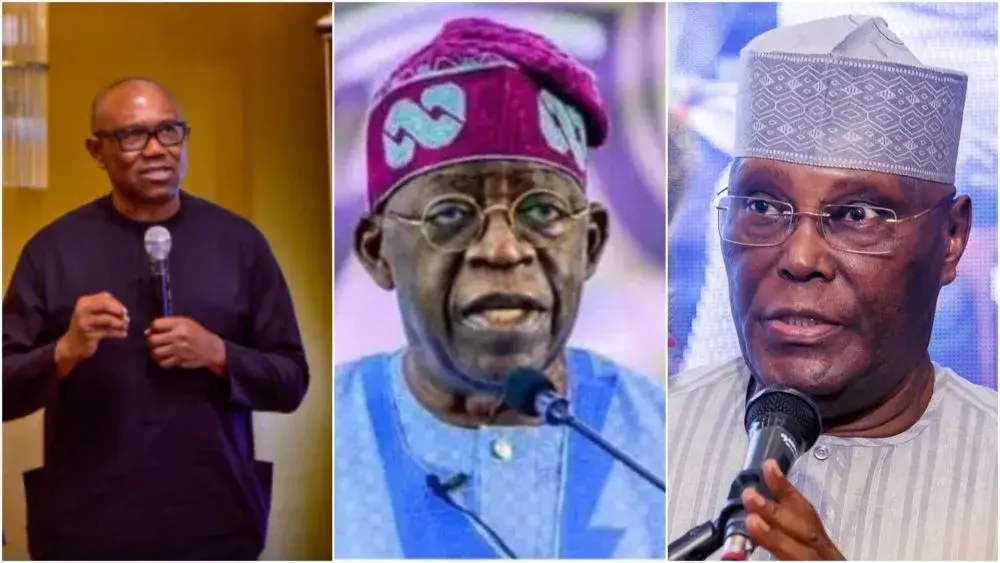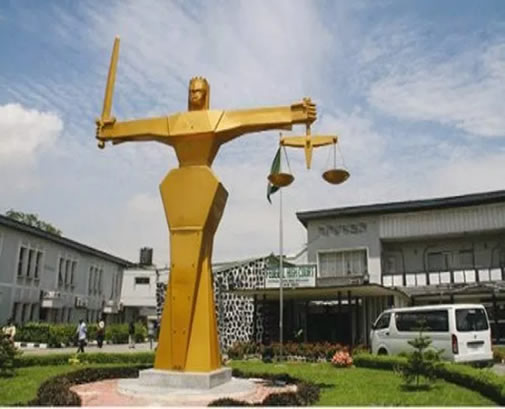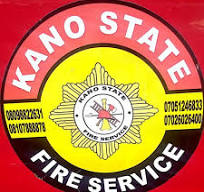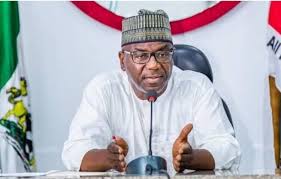POLITICS
Manifesto, Restructuring and Regional Strategic Interest

By Law Mefor
Generally, a manifesto is a declaration of the intentions and views of the issuer, who could be an individual, group, political party, or government over a policy direction to pursue if given the chance. A good manifesto usually accepts a previous popular opinion or public consensus or promotes a new idea with prescriptive notions for carrying out changes the author believes are necessary.
It is all about the individual’s convictions on issues of policy. The manifesto is as important as the creed of religion.With these operational definitions and postulations, one can easily see there is something fundamentally wrong with the manifestos of the leading Presidential candidates from the south divide of the country, namely Bola Ahmed Tinubu and Peter Obi.
They are silent on the burning issue of restructuring, which South Nigeria has canvassed for over a decade. In canvassing for restructuring of Nigeria to restore it into a truly federal polity from its current unitary status, the apex socio-cultural organizations in Nigeria and countless NGOs have been at the forefront. Afenifere, Ohanaeze, PANDEF, and Middle Belt Forum have separately and jointly made a case for restructuring and were and were all present during the 2018 Awka Declaration on Restructuring by Ndigbo in Nigeria.Based on such agitations and urgency for restructuring the polity, various regimes set up one body or the other to tease out the specifics and guide the respective governments on the subject matter. The last was the National Conference convoked in 2014 by President Goodluck Jonathan (as he then was). The APC government also set up the El-Rufai Committee on restructuring in response to the growing clamor for it, essentially coming from southern Nigeria and north central. Why then are leading south Nigeria presidential candidates not making an issue, leaving Atiku Abubakar as the only talking about it?
The manifestoes of the candidates are out and restructuring is conspicuously missing in the manifestoes of Tinubu and Peter Obi and where they mentioned restructuring at all in their explanatory notes it is either in passing or connotes a different thing or dealing with fringe issues on restructuring. Tinubu and Obi are simply not interested in restructuring or are too scared to talk about it. They rather dwelt extensively on administrative reforms, which is like treating cancer with medicine meant for eczema.
Tinubu’s priorities according to his manifesto are: On Economy – to build an efficient, fast-growing, and well-diversified emerging economy; Agriculture and Food Security: Renewed focus on Agriculture and food security; Infrastructure: Build a new Nigeria and develop a national infrastructure plan; Oil, Gas and Solid Minerals : his administration to undertake a comprehensive reform of the oil & gas sector; Healthcare: administration to focus on improving the nation’s health care; Tackling Poverty: to provide for all Nigerians the basic needs of life; To support for micro and small businesses; Housing: administration to embarking on a mass housing strategy; To keep Nigerians safe – secured security of life and property; Budget, Fiscal Policy, and Revenue Generation to be topnotch to fight wastefulness, corruption, and inefficiency in public service delivery; Right-sizing of government; and to ensure rule of law.
Even though he mentioned he would give concessions to LGs and States, Tinubu’s manifesto, does not make restructuring the polity an issue. Under Tinubu unitary Nigeria is assured with a few palliative administrative reforms.
On their declaration of commitment to a better Nigeria, the Obi/Datti manifesto titled ‘Our Pact with Nigerians: Creating a New Nigeria’, pledges to offer honest and competent leadership to deliver on seven priorities, namely: To secure Nigeria, end banditry and insurgency; and unite our dear nation, to manage our diversity such that no one is left behind; Shift emphasis from consumption to production by running a production-centered economy that is driven by an agrarian revolution and export-oriented industrialization; Restructure the polity through effective legal and institutional reforms to entrench the rule of law, aggressively fight corruption, reduce the cost of governance, and establish an honest and efficient civil service; Leapfrogging Nigeria into the 4th Industrial Revolution (4IR), through the application of scientific and technological innovations to create a digital economy.; Build expansive and world-class infrastructure for efficient power supply, rail, road and air transportation, and pipeline network, through integrated public-private partnerships, and entrepreneurial public sector governance; Enhance the human capital of Nigerian youth for productivity and global competitiveness through investment in world-class scholarship and research, quality healthcare, and entrepreneurship education; and (to) Conduct an afro-centric diplomacy that protects the rights of Nigerian citizens abroad and advance the economic interests of Nigerians and Nigerian businesses in a changing world.
The mention of restructuring in the Obi/Datti manifesto has a different aim/meaning from the devolution of powers, and where restructuring applies in the entire manifesto is where the multilayer policing was mentioned in passing and tucked away somewhere.
Compared to the Atiku/Okowa manifesto a startling difference emerges. The Atiku/Okowa seeks to pursue a 5-point agenda: The policy document tagged, ‘My Covenant with Nigerians,’ is an update on the Atiku/Obi 2019 manifesto. On restructuring and the urgent need to devolve power to states and local government and making restructuring one of its cardinal agendas, Atiku/Okowa manifesto notes: “Nigeria has continued to operate a faulty, complex federal structure with a high degree of centralization at the centre… We must adopt a new economic management model that will cure all the federating units of this addiction to oil revenues… establish a new political structure that reinforces the concept of ‘true federalism’ by conceding unfettered autonomy to the subordinating units. ”
One is therefore tempted to ask: Is restructuring important to the south only when the north is in power? Many suggest that southern presidential candidates shy away from the restructuring conversation afraid it might hurt the core north and rob them of their votes. But even before their presidential ambitions became obvious, Tinubu and Obi have never really canvassed restructuring as a solution to the nation’s myriad of problems. The danger is, since they have never canvassed restructuring, how are Nigerians sure they will pursue it as policy as presidents, with all the pushbacks likely to come from the same quarter they fear today?
This question is now germane given the nation’s recent experience. There is something fundamentally wrong with southern political leaders in their transactional approach to nation-building and presenting and representing the strategic interest of their people. They will cry restructuring when the north is in power and do nothing when given the opportunity. Olusegun Obasanjo spent eight years of his tenure as president of Nigeria fighting all attempts to restructure via alteration of the 1999 Constitution. The last attempt by NASS under Ken Nnamani as Senate president was also killed by Obasanjo’s interest in the 3rd term, which was inserted into it by his cronies.
Dr Goodluck Jonathan also did nothing about restructuring. Even his 2014 Confab report was also abandoned despite the over 600 recommendations contained therein that would have fundamentally changed Nigeria. More than half of the said Confab recommendations did not require constitutional amendments. Yet Jonathan did nothing despite the one-year residue of his tenure still available to him by the time the report was submitted.
More importantly, why are southern Nigeria leaders not insisting that the leading presidential candidates from their part of the country make restructuring an issue? Should the clamour for restructuring wait until yet another president is sworn in?
POLITICS
16 Parties to Jostle for Anambra Governorship Seat—INEC

The Independent National Electoral Commission (INEC) says 16 out of 19 registered political parties in the country will participate in the Nov. 8 governorship election in Anambra.
Mr Sam Olumekun, National Commissioner and Chairman, Information & Voter Education Committee, INEC said this in a statement on Thursday in Awka.
Olumekun recalled that the commission recently published the particulars of candidates that emerged from parties’ primaries.
“A total of 16 political parties uploaded the particulars of their candidates (Form EC9) by the deadline of 6.00pm on May 12, 2025.
“Therefore 16 out of the 19 registered parties are participating in the election,’’ he said.
He said the participating parties’ candidates and running mates are Accord (A) Charles Onyeze and Apollonia Ezeadili, Action Alliance (AA); Japhet Ndeke and Anayochukwu Obi.
According to him, also participating are: African Action Congress (AAC) which is fielding Grace Ifemeludike and Ikechukwu Mgbemena, African Democratic Congress (ADC); John Nwosu and Ndubuisi Nwobu, All Progressives Congress (APC); Nicholas Ukachukwu and Lilian Ekwunife.
Also in the race are All Progressives Grand Alliance (APGA) represented by Chukwuma Soludo and Gilbert Ibezim while the flag of Allied Peoples Movement (APM) will be flown by Echezona Otti and Samuel Ezeigwe.
He said the Action Peoples Party (APP) would feature Cukwudubem Ndeke and Ebele Okeke as its candidate and running mate.
Others include Boot Party (BP) which would feature Jerry Okeke and Happiness Ugboma; Labour Party (LP) to be represented by Nnadubem Moghalu and Veronica Okaro; and New Nigeria Peoples Party (NNPP) on whose platform will be Geoffrey Onyejegbu and Victor Arinze.
The National Rescue Movement (NRM) would field Ndidi Olieh and Reginald Egbe; Peoples Democratic Party (PDP) would have Jude Ezenwafor and Chukwudi Okeke while Social Democratic Party (SDP) will field Vincent Chukwurah and Venatious Odira.
Similarly, Chukwuka Chukwuma would fly the flag of Young Progressives Party (YPP) with Izuchukwu Okagbue as running mate while Zenith Labour Party (ZLP) would have Martin Ugwoji and Faith Obi.
Olumekun said that in line with the provision of Section 33 of the Electoral Act 2022, political parties were empowered to replace their candidates who voluntarily withdraw from the race.
“The deadline for the withdrawal and substitution of candidates was Monday June 2, 2025.
“Consequently, the commission hereby publishes the final list of candidates that will contest in the 2025 Anambra state governorship election,” he said.
He said that no party had nominated a person with disability as a candidate.
The National Commissioner said the age bracket of the candidates is between 36 and 71 years.
According to him, the full list of the candidates by party, age, gender and academic qualifications have been uploaded on the commission’s website and social media platforms for public information.
He said with this publication, no further withdrawal or replacement of candidates would be allowed except in the event of death of a candidate or running mate before election day.
This, he explained, is as provided by Section 34(1) of the Electoral Act.
He said that in line with the provision of Section 94(1) of the Electoral Act 2022, parties would start their electioneering campaigns in public from June 11, 2025 and end at midnight on Nov. 6.
“All political parties and candidates must be given unimpeded access to public facilities for media campaign, outdoor advertising as well as public rallies and meetings.
“For the avoidance of doubt, Section 95(2) of the Electoral Act 2022 prohibits the use of incumbency to the advantage or disadvantage of any party or candidate,’’ he said.
He expressed optimism that the governorship election would hold on Nov. 8 as scheduled. (NAN)
POLITICS
CP-PDP to Wike: “You’re Not Recognized as PDP Member”

By Mike Odiakose, Abuja
The The Conference of Professionals in the PDP (CP-PDP) on Wednesday said the Minister of the Federal Capital Territory, Nyesom Wike has crossed the red line and he is no longer recognized as a bonafide member of the Peoples Democratic Party (PDP).
Reacting to the recent outburst by Wike in his latest media parley wherein he boasted that no one has the guts to tell him that he is not a member of the PDP, the CP-PDP declared that he has lost his membership of party by his open cessation of subscription, loyalty and adherence to the mandatory Code of Conduct of members as enshrined under Section 10 (6) of the PDP Constitution (as amended in 2017).
In a statement signed by Obinna Nwachukwu,
Protem National Coordinator, CP-PDP, “For emphasis Section 10 (6) of the PDP Constitution unambiguously dictates that “No member of the party shall align with other parties or groups to undermine the party or any of its elected government”.
“It is instructive to state that the legal claim, validity or legitimacy of membership of any political party or any organization for that matter, is explicitly embedded in the uncompromised subscription and absolute loyalty by an individual to the enshrined Code of Conduct of the organization.
“The self-executory import of Section 10 (6) is that by publicly aligning with the APC and declaring to work for the victory of the APC in the 2026 FCT Council Election and the 2027 Presidential election, the FCT minister, has by such alignment and declaration renounced, relinquished and terminated his membership of the PDP.
“Moreover, the constant outbursts, hauling of insults on the party leaders and the recent declaration to ‘pull out of all agreements’ and ‘to fight’ in the PDP underpins a complete rejection of the letters and spirit of the Code of Conduct of the PDP which action can only be associated with a non-member of the PDP.
“Furthermore, as patriotic Nigerians, the CP-PDP is disturbed by the FCT Minister’s use of his media parleys as channel to attack our party leaders. Such only overheats the polity and creates apprehension in the polity.
“The CP-PDP as a well-meaning body has directed our media professionals to engage their colleagues in the media on ways to check this disturbing trend. It must also be noted that nobody has the monopoly of media outbursts.”
While admonishing Chief Wike to leave the PDP alone and face his job in the APC administration, the CP-PDP restates its challenge to Chief Wike to hold a live media public hearing and allow Nigerians to directly engage him on allegations of corruption, mismanagement of funds, land grabbing, racketeering, vindictive revocation and demolition of property as well as alleged exploitation of residents, commuters and businesses with heavy tariffs, multiple levies and fees going on in the FCT in the last two years.
POLITICS
Mid-term Report: Otti’s Govt Lacks Accountability, Transparency, says APC

… Accuses Gov of Running ‘One-man Show’
By Mike Odiakose, Abuja
The Abia State chapter of the All Progressives Congress (APC) has slammed Governor Alex Otti of Abia state, for lack of
transparency and accountability since he came into office in 2023.
Speaking at the inauguration of the Renewed Hope Partners in the state, which held late on Sunday, Abia state APC Chairman, Dr.
Kingsley C. Ononogbu, said Governor Otti has been running a “one-man show” driven by propaganda rather than purpose.Abia state chapter APC chaitman, however, assured the people and residents in the state of a competent hand devoid of propaganda and a one-man show.
According to him, a “better and truly new Abia” is still possible under the right leadership.
The Renewed Hope Partners is a support group of the party solely mobilizing support for the re-election bid of President Bola Ahmed Tinubu ahead of 2027 general elections.
According to Ononogbu, the inauguration marks the beginning of the journey aimed at repositioning Abia State for the Renewed Hope Crusade, and I believe so because I can see on the faces of everyone here, the search for a truly new Abia State.
He said: “When we read and listen to social media hype and praises, regarding the state of Abia, one often wonders if it is the same Abia State that we live in.
“Abia State today is nothing but a “A One Man Show” anchored on a very well oiled propaganda machinery. Accountability is long gone. Checks and balances non existent while conflict of interest is now a norm.
“A government of one man show from his private home and for selected friends and cronies. A government where the governor operates as the chief executive, chief accountant and the auditor.
“An administration that would prefer to convert a newly built government house to a 5 star hotel, while operating necodemously from his personal house. And for the roads being built newly, the style of collation, scrutiny, and award of the contracts falls below acceptable standard of state (F&GPC) and best practice.”
The APC chieftain declared that the Renewed Hope Partners must come to terms with the fact that they are support groups of the party and must partner with the party in its collective efforts to reach out to the grassroots across the country.
“When our people are well informed, they will stand firmly to rebuke and resist the sugar- coated lies of the deceitful coalition oppositions.”
He assured that the party will not only win at the federal level in 2027 “but APC will also win in Abia State.”
He also called on all the APC stakeholders in the state to be more united, saying “in the spirit of the ongoing reconciliations as directed by the President and accepted by all the critical Stakeholders of Abia APC , I urge all APC members in Abia State who for one reason or the other have been staying away from the activities of the party in the state to come back home.”
























